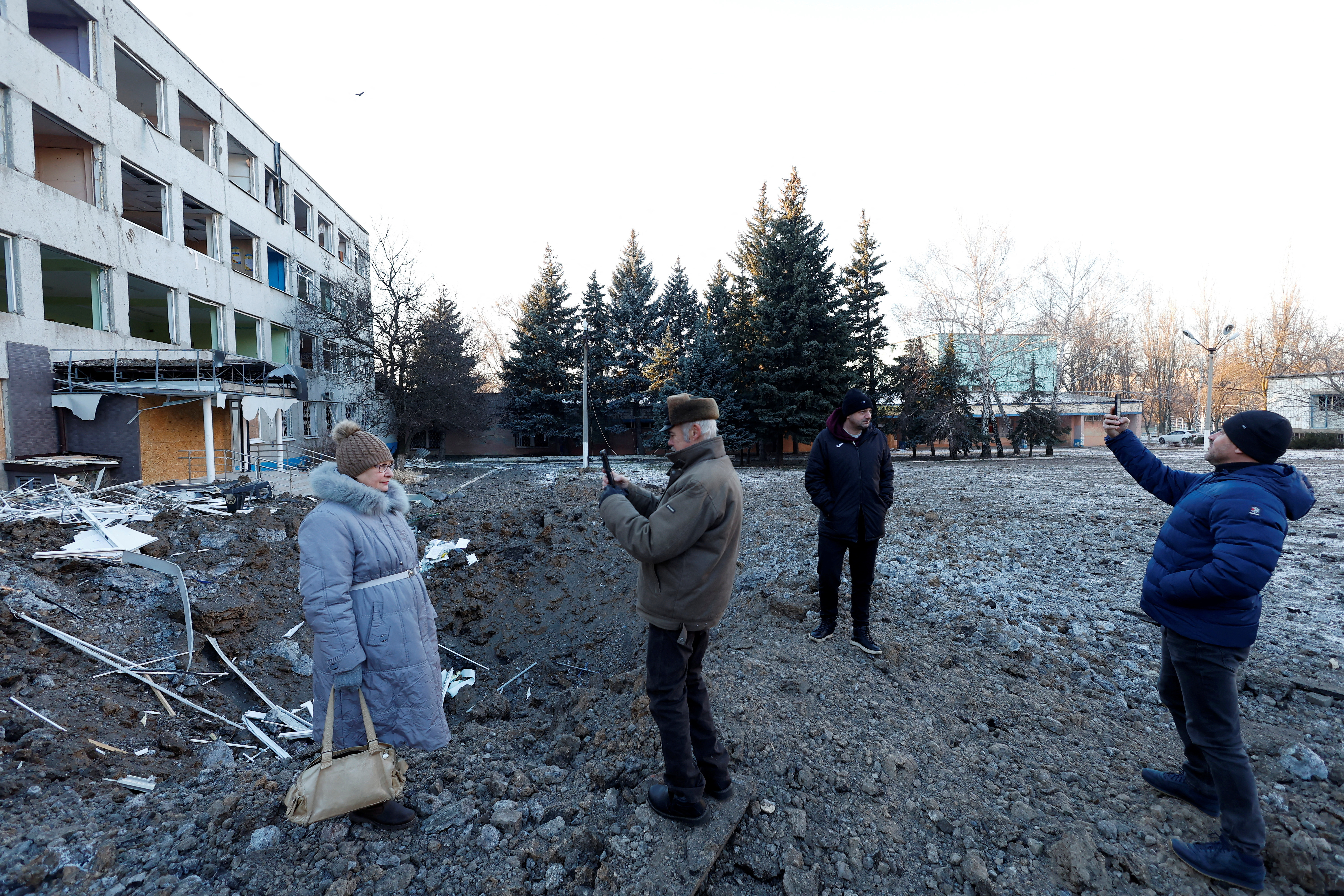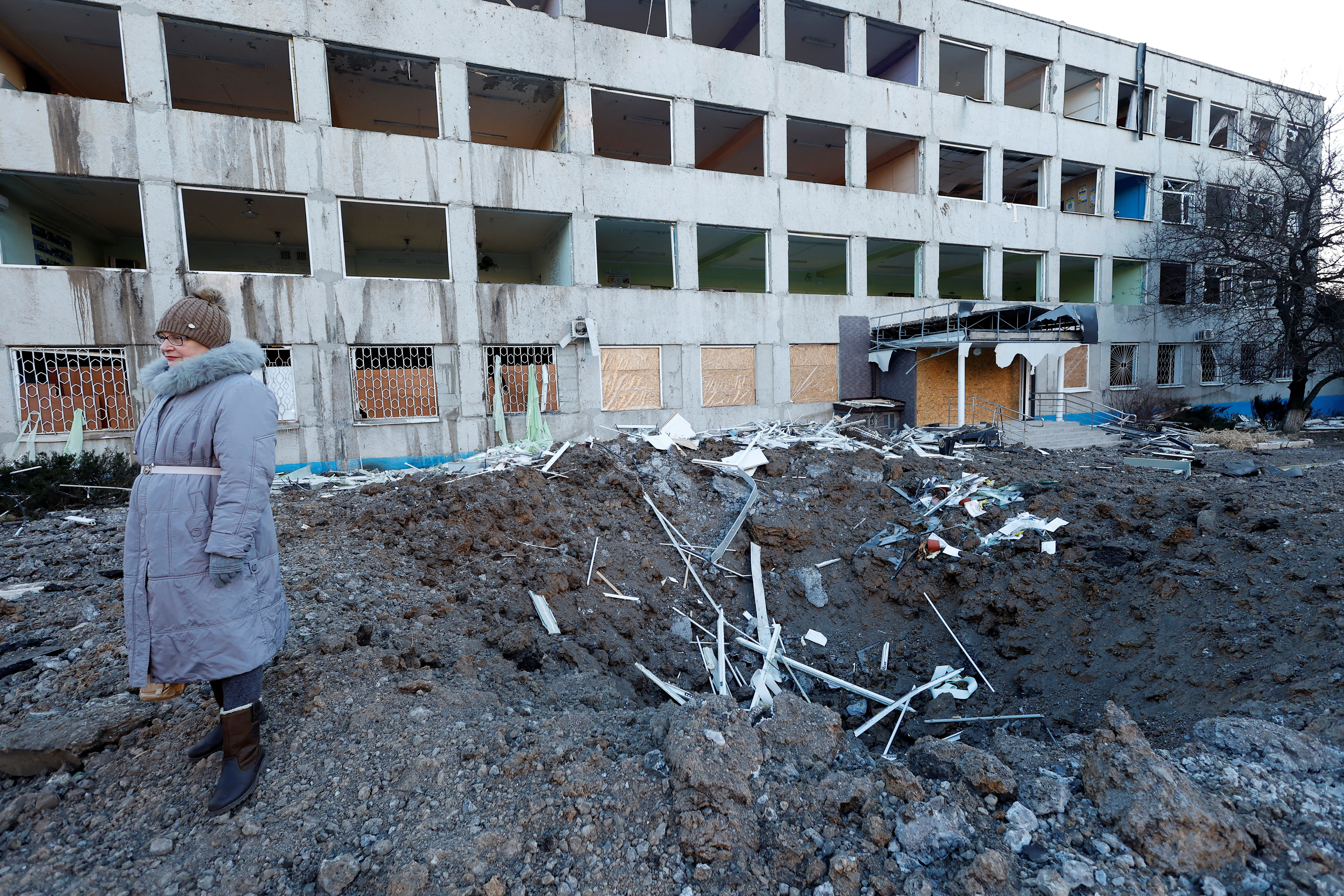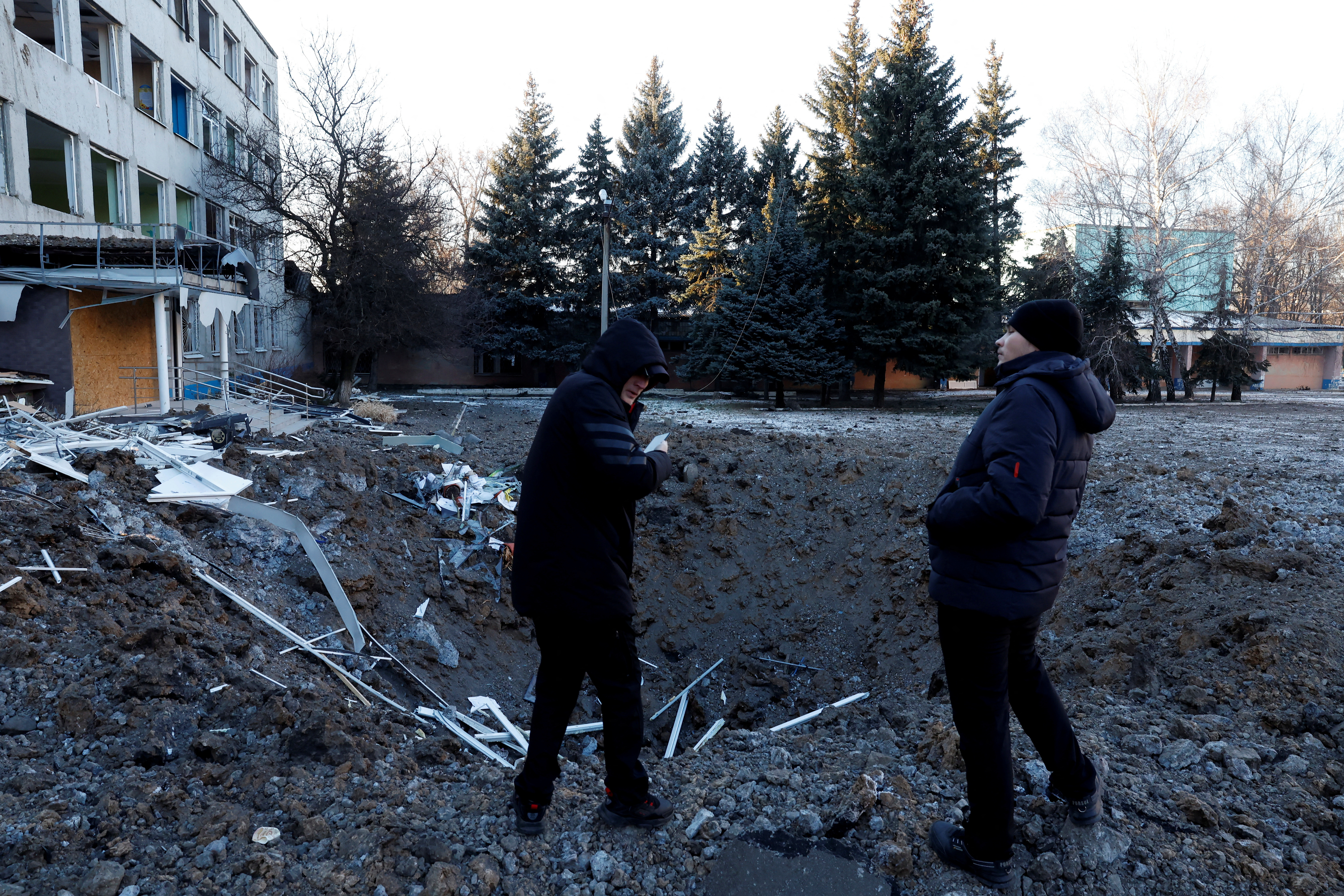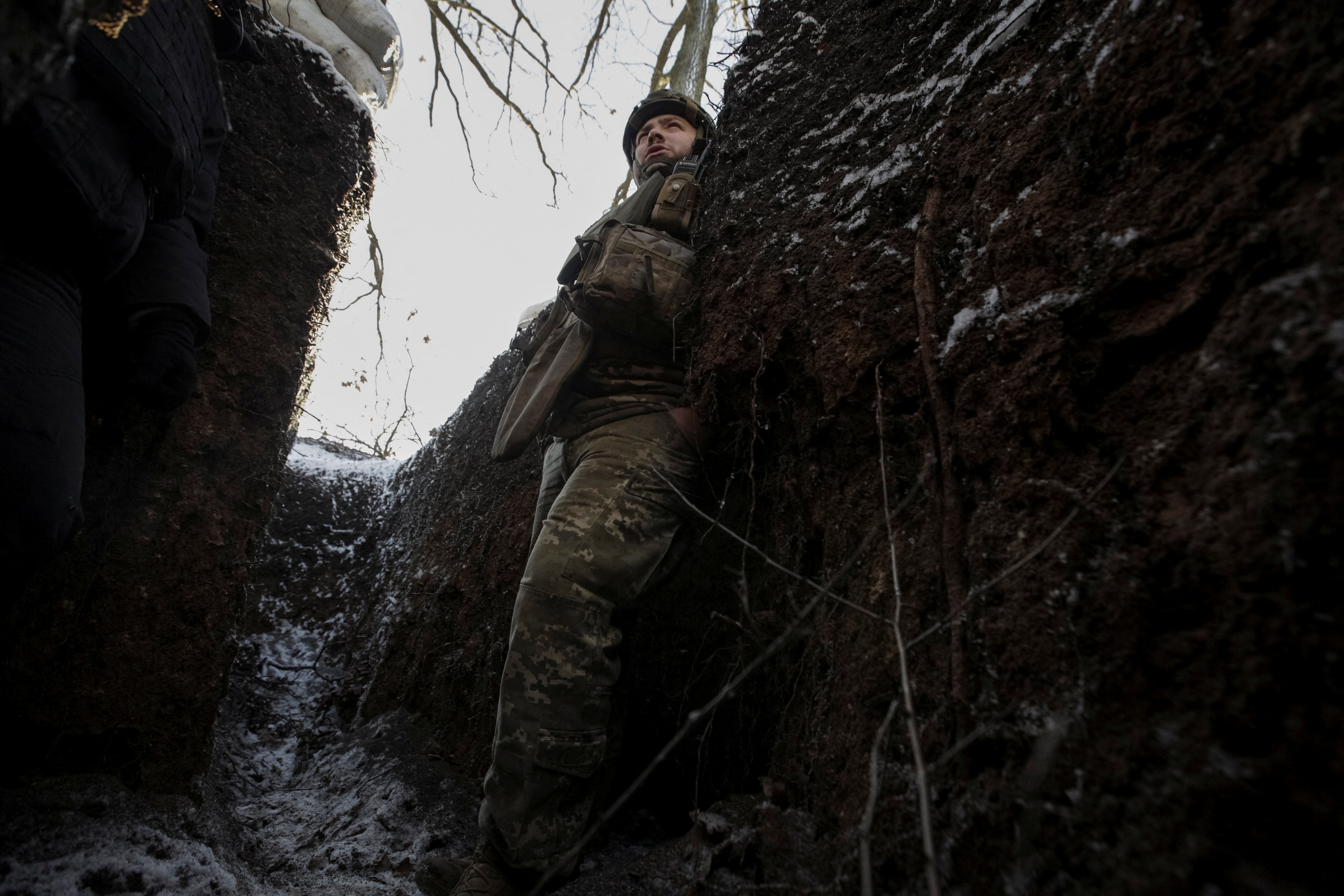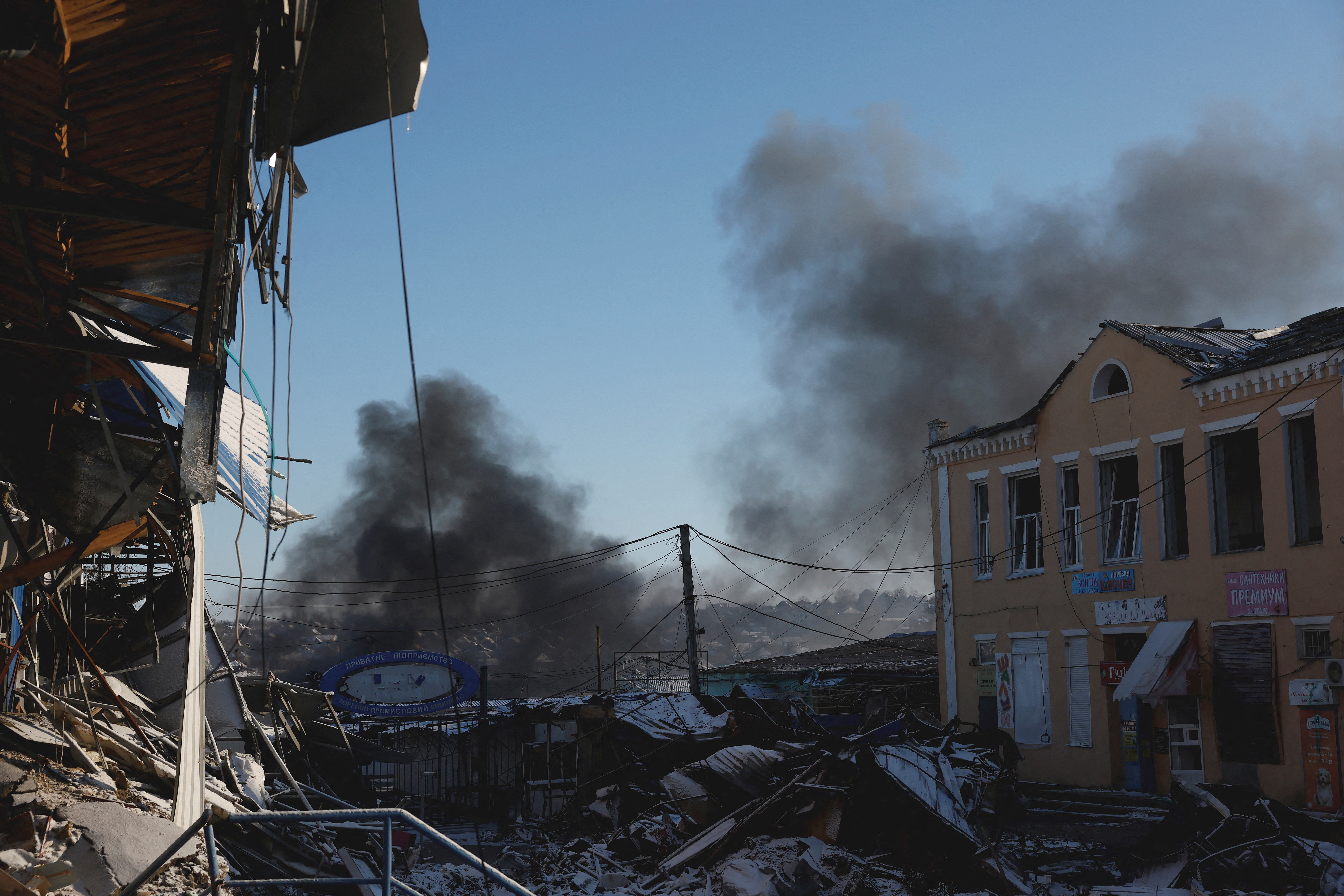A Russian missile attack on the Ukrainian city of Kramatorsk missed its targets and there were no obvious signs of casualties, a Reuters reporter said on Sunday, after Moscow claimed the strike killed 600 Ukrainian soldiers.
A Reuters team visited two college dormitories that Moscow said had been temporarily housing Ukrainian personnel and which it had targeted as revenge for a New Year’s attack that killed scores of Russian soldiers and caused outcry in Russia.
But neither dormitory in the eastern city of Kramatorsk appeared to have been directly hit or seriously damaged. There were no obvious signs that soldiers had been living there and no sign of bodies or traces of blood.
Serhiy Cherevatyi, a Ukrainian military spokesperson for the eastern region, described the claim of mass casualties as an attempt by the Russian defence ministry to show it had responded forcefully to Ukraine’s recent strikes on Russian soldiers.
“This is an information operation of the Russian defense ministry,” Cherevatyi told Ukrainian broadcaster Suspilne News.
Authorities in Kyiv did not immediately comment. Kramatorsk’s mayor earlier said there had been no casualties.
As Moscow’s invasion of Ukraine grinds towards the one-year mark, Russia’s military is under domestic pressure for battlefield successes. Hawkish voices have sought an escalation of the war effort after setbacks including loss of captured territory and high rates of death and injury.
Bad winter weather has hindered fighting on the front lines, although a cold snap that freezes and hardens up the ground could pave the way for both sides to launch offensives with heavy equipment, Serhiy Haidai, governor of Ukraine’s Luhansk region said.
There have also been growing concerns that Belarus – a close ally of the Kremlin – could be used as a staging post to attack Ukraine from the north after military activity including planned joint aviation drills in the country and a fresh transfer of Russian troops there.
Russia’s defence ministry, in a statement, said the strike on the buildings in Kramatorsk was a revenge operation for the deadly Ukrainian attack last week on a Russian barracks in Makiivka, in part of the Donetsk region controlled by Moscow’s forces, in which at least 89 servicemen were killed.
It said Moscow had used what it called reliable intelligence to target the Ukrainian troops. More than 700 Ukrainian troops had been housed in one hostel and more than 600 in another, it said.
“As a result of a massive missile strike on these temporary deployment points of Ukrainian army units, more than 600 Ukrainian servicemen were destroyed,” the defence ministry said.
If true, it would be the single largest loss of Ukrainian troops since Russia invaded on Feb. 24 last year. Neither side in the war, now in its eleventh month, usually disclose losses.
Ukraine was believed to have stopped housing troops close together in single facilities after a deadly Russian missile strike on a base in western Ukraine in March which killed dozens.
The practice of housing soldiers all together came into focus too after Ukraine’s New Year’s Day strike, with Russian military commanders subject to fierce criticism inside Russia for not dispersing their forces.
In Kramatorsk, residents in the populated area around the dormitories described the force of the explosion that rocked their homes overnight but said it was not out of the ordinary for the region, close to the eastern front.
The residents said they heard explosions shortly after 11 p.m. local time – midnight Moscow time – when a ceasefire declared by Russia for Eastern Orthodox Christmas had been due to end.
The Russian statement named two buildings, the dormitory of a site called College No.47 and a dormitory affiliated with College No.28, both in Kramatorsk.
Reuters visuals showed some of the windows broken at the College No.47 dormitory. There was a large crater in the courtyard. The windows of the nearby college had been smashed.
The College No.28 dormitory was entirely intact. A crater lay about 50 metres away from it closer to some garages. Some of the college’s windows were smashed.
“It was very loud, it threw people out of their beds. Some people hurt their fingers because of the blast wave,” said Polina, 74, a resident who lives across from one of the dormitories.
“There was an explosion, and then another explosion. The windows shook… Really, there’s nothing else to tell you. Just a normal day,” said Mykhailo, a 41-year-old resident.
Oleksandr Honcharenko, Kramatorsk’s mayor, said the attack had damaged two educational facilities and eight apartment buildings and garages but that there had been no casualties.
Pavlo Kyrylenko, Ukraine’s governor of Donetsk, had said earlier that Russia had launched seven missile strikes on Kramatorsk.
Russia has repeatedly shelled Kramatorsk, which is also in the Donetsk region, one of four regions Moscow claims to have formally incorporated into Russia, something Ukraine and most countries in the world do not recognise.
Kramatorsk lies a few miles northwest of Bakhmut, a small city which Russia has been trying to take for more than five months in a brutal battle which has become the scene of some of the fiercest fighting in recent weeks.
Ukrainian officials earlier said at least two people had been killed elsewhere in Russian overnight bombing after the unilateral Russian Orthodox Christmas ceasefire had expired.
A 50-year-old man had been killed in the northeastern region of Kharkiv, Oleh Synehubov, the governor of the region, said on the Telegram messaging app.
Another person had been killed in overnight attack on Soledar, close to Bakhmut, local officials said.
Reuters could not immediately verify those claims.
Related Galleries:
